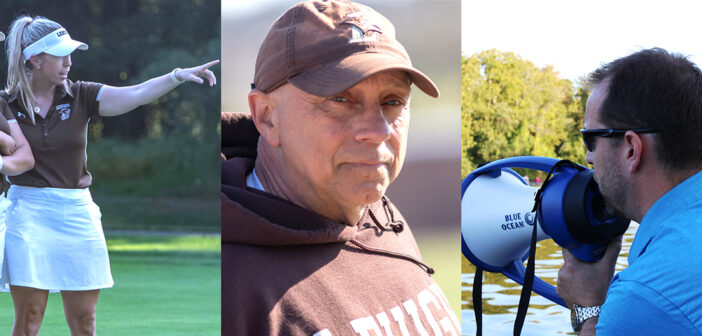Lehigh coaches knew one thing for certain as the NCAA continued to assess recruitment guidelines amidst the pandemic: they would have to find a new way to support and interact with the college-bound student-athletes that they would be inviting into their programs.
While the recruiting dead period has been extended to Sept. 30, further putting face-to-face interaction on hold, those within Lehigh’s athletic department have already made strides in adjusting to a virtually-oriented recruitment process.
Throughout the summer months and into this fall, coaches have been tasked with molding a 2021-22 recruitment class in the absence of in-person evaluations or visits.
“It’s definitely hard to get a complete picture of a student-athlete when you don’t get a chance to see them in person, but we are all doing the best that we can,” said softball head coach Fran Troyan.
Despite the challenge, many Lehigh coaches have turned to skill videos as a mode of evaluating prospective athletes and have likewise provided virtual glimpses of campus to their recruits. While it may not be the traditional model for evaluating athletes, coaches widely agreed that the Lehigh athletic department has done a solid job in creating a variety of virtual resources for its prospective students to access.
Troyan said the exploration of these resources, in addition to an acquired comfort with utilizing digital platforms, has been anxiety-reducing for many athletes during the transition to a new reality.
With such a large effort dedicated to bettering the virtual approach to recruitment, the recruiting process has not been significantly hindered. Sports that heavily rely on individual statistics, such as golf, have found minimal disadvantages to their recruitment processes this year.
Mary Kate Lynch, the women’s golf head coach, said her ability to take a look at scores and courses that prospective student-athletes played this summer has made the process manageable despite COVID-19.
Nevertheless, Lynch said there is a great loss in not having the ability to communicate with athletes in-person.
“I really like having that face-to-face conversation, so we have had to think creatively in terms of virtual communication,” Lynch said.
In addition to missing out on in-person interactions with recruits, Lynch also said she will miss time spent with athletes and their families when they visit campus.
Brian Conley, the men’s rowing head coach, echoed this point, referencing how important Lehigh’s campus can be in persuading a recruit to commit to the school.
“How we show the campus has been a major struggle, as particularly for Lehigh, students coming to the campus and getting a personal feel for it is typically a significant component of the commitment decision,” Conley said.
Looking forward, all three coaches had optimism for Lehigh’s ability to virtually correspond with recruits, with Conley noting that the athletic department’s resources have improved significantly in the last several months — creating promise for the months to come.
Troyan agreed, emphasizing the idea that Lehigh’s core values have remained unchanged.
“These circumstances have forced us to better our ability to tell our story in a different form,” Troyan said. “Our story has always been the same — Lehigh is a place where we are looking to bring in people that aspire to grow, learn and lead. It was just a matter of sharing that story in a new way.”
As many coaches move forward through the remainder of 2020, they are prepared for possible extensions of the NCAA mandated recruiting dead period. This will likely come as no surprise due to the repeated extensions during this past year.






Comment policy
Comments posted to The Brown and White website are reviewed by a moderator before being approved. Incendiary speech or harassing language, including comments targeted at individuals, may be deemed unacceptable and not published. Spam and other soliciting will also be declined.
The Brown and White also reserves the right to not publish entirely anonymous comments.